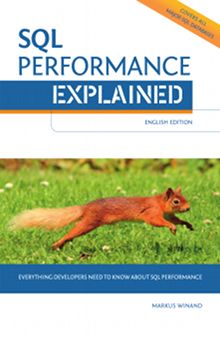SQL’s NULL frequently causes confusion. Although the basic idea of NULL—to represent missing data—is rather simple, there are some peculiarities. You have to use IS NULL instead of = NULL, for example. Moreover the Oracle database has additional NULL oddities, on the one hand because it does not always handle NULL as required by the standard and on the other hand because it has a very “special” handling of NULL in indexes.
The SQL standard does not define NULL as a value but rather as a placeholder for a missing or unknown value. Consequently, no value can be NULL. Instead the Oracle database treats an empty string as NULL:
SELECT '0 IS NULL???' AS "what is NULL?" FROM dual
WHERE 0 IS NULL
UNION ALL
SELECT '0 is not null' FROM dual
WHERE 0 IS NOT NULL
UNION ALL
SELECT ''''' IS NULL???' FROM dual
WHERE '' IS NULL
UNION ALL
SELECT ''''' is not null' FROM dual
WHERE '' IS NOT NULLTo add to the confusion, there is even a case when the Oracle database treats NULL as empty string:
SELECT dummy
, dummy || ''
, dummy || NULL
FROM dualConcatenating the DUMMY column (always containing 'X') with NULL should return NULL.
The concept of NULL is used in many programming languages. No matter where you look, an empty string is never NULL…except in the Oracle database. It is, in fact, impossible to store an empty string in a VARCHAR2 field. If you try, the Oracle database just stores NULL.
This peculiarity is not only strange; it is also dangerous. Additionally the Oracle database’s NULL oddity does not stop here—it continues with indexing.

